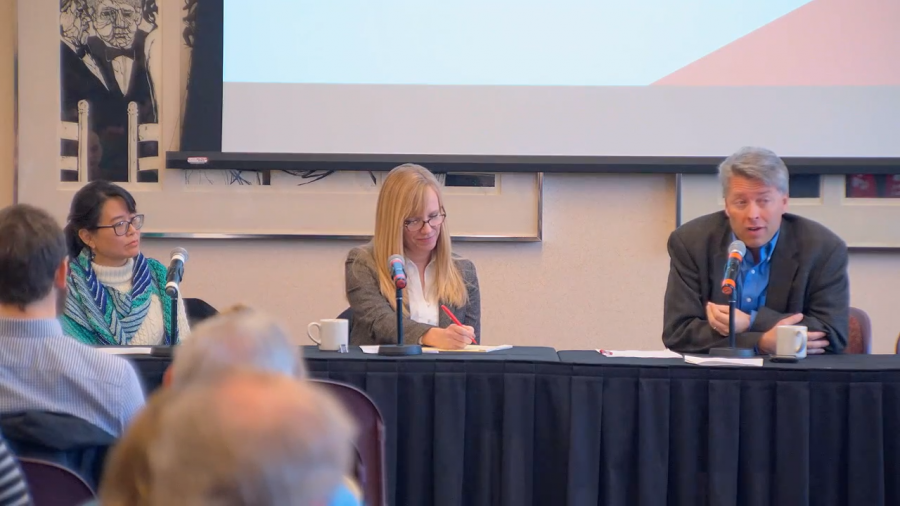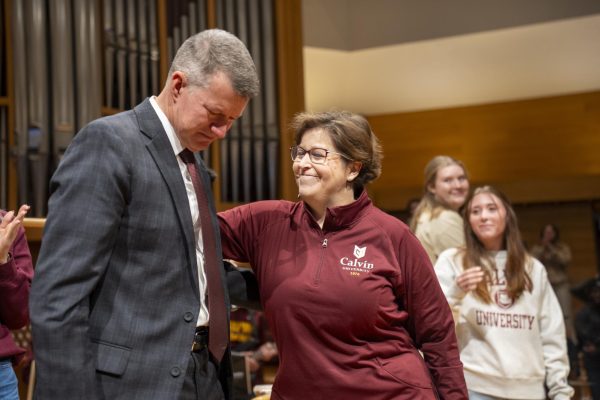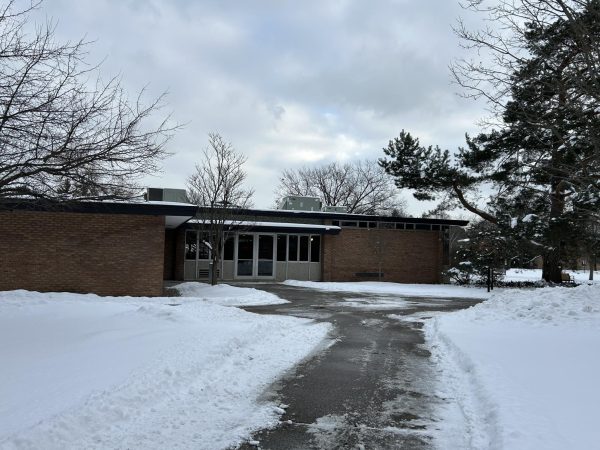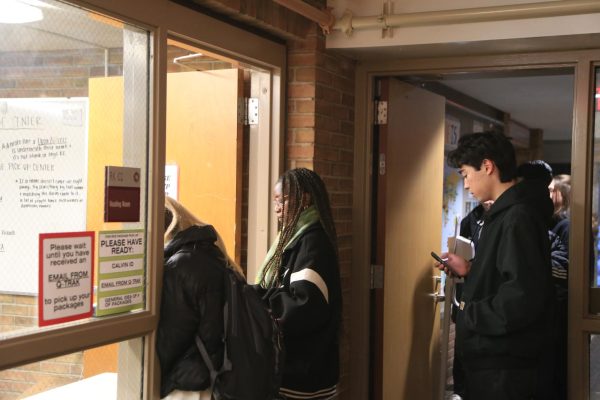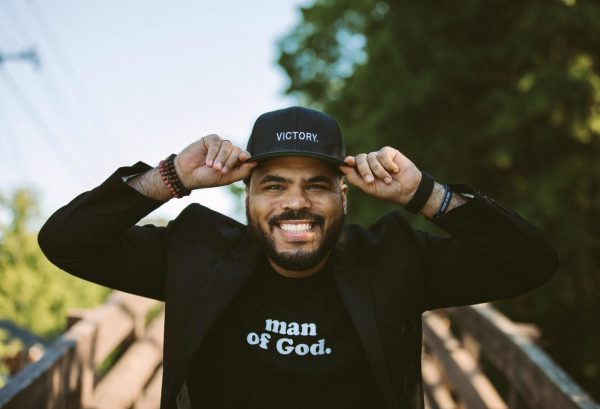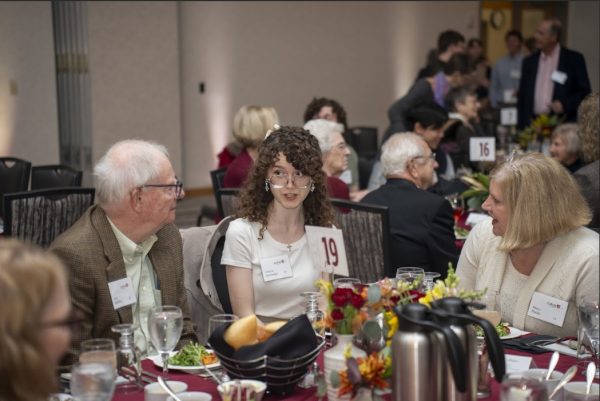2029: Calvin’s reformed identity taking shape
(Left to right) Pennylyn Dykstra-Pruim, Renee Sparks and John Witvliet. Photo courtesy Calvin College.
A panel of three Calvin faculty members gathered on Nov. 16 in the Willow Room of Prince Conference Center to discuss “how should a Reformed theological vision shape the college’s definition of academic excellence and diversity?” The event was attended by faculty, staff and students.
The panel consisted of three members of the “Reformed question” subcommittee: Pennylyn Dykstra-Pruim, associate professor of Germanic and Asian languages; Renee Sparks, geology professor; and John Witvliet, director of Calvin Institute of Christian Worship.
Jolene Vos-Camy, a professor from the French department and vice chair of faculty senate, moderated the discussion.
This is the final panel in the four-panel series that the Vision 2029 team has hosted this semester. The Vision 2029 team, composed of a group of 14 faculty members and a single student, has been considering the discussion of the four panels as they help formulate Calvin’s future vision statement.
When asked “What would characterize a global, diverse and expansive vision of Calvin College’s Reformed approach to academic excellence?” Dykstra-Pruim said, “Our students should be able to engage in the world and across lines of difference with the appropriate skills or practices.”
“Our approach at Calvin should be embraced by this goal: raising up global citizens,” Dykstra-Pruim continued.
Witvliet stressed how important it is that every student at Calvin knows the essential unity of all Christians from all denominations “deep within their soul.”
Witvliet also pointed out that Calvin is more than only “Reformed” stressing that there are many Reformed Christians in the world, a very small percentage of which are in the Christian Reformed Church.
The panel also discussed the questions “Within this Reformed theological vision, what policies, practices and processes at Calvin College should we engage? How do we engage scholarship, teaching in this light?”
The panelists proposed various discussions topics that Calvin must consider when moving forward when considering their Reformed identity. These topics include class sizes, a reconsideration of future faculty requirements, a year long study of the Holy Spirit and a collection of stories and testimonies from Calvin students. The panelists also suggested other policies, practices and processes.
Sparks mentioned the necessity of “looking for fruit” in our classrooms.
While increasing faculty diversity was an issue of concern for the panel, they expressed that Calvin’s context poses some difficulties in doing so. They mentioned that application numbers can be low for certain departmental openings and the Reformed qualification reduces the number of available applicants.
The full panel discussion about Vision 2029’s Reformed vision can be found here.



